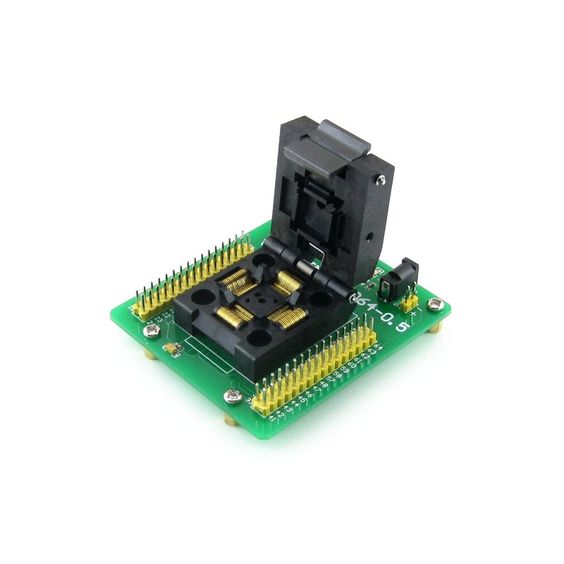Test sockets are essential tools in the field of electronics testing, serving as a critical interface between semiconductor devices and test equipment. They enable the efficient and reliable evaluation of integrated circuits (ICs), microprocessors, memory chips, and other electronic components at various stages of development, manufacturing, and quality assurance.

During the initial stages of electronic product development, engineers often need to test and validate different semiconductor components without permanently soldering them onto a circuit board. Semiconductor socket series play a vital role in this phase by allowing easy insertion and removal of semiconductor devices for testing purposes. Engineers can quickly swap out components, make adjustments, and iterate designs without damaging the devices, accelerating the prototyping process.
Functional testing is essential to ensure that semiconductor devices operate correctly according to specifications. Test sockets, such as fine pitch test sockets, provide a temporary electrical connection between the device under test (DUT) and the test system, enabling comprehensive functional testing. By interfacing with automated test equipment (ATE) or manual testing setups, test sockets facilitate the execution of test routines to verify device functionality, performance, and compliance with standards.
Many semiconductor devices require programming with firmware or configuration data before deployment in electronic systems. Test sockets equipped with programming interfaces enable efficient device programming during the testing phase. Engineers can use specialized programming tools to load firmware onto the DUT through the test socket, ensuring that devices are correctly configured and ready for operation.
Reliability testing, such as burn-in testing or accelerated life testing, subjects semiconductor devices to extreme conditions (e.g., high temperature, voltage stress) to identify potential failure modes and assess long-term reliability. Test sockets designed for reliability testing are built to withstand harsh environmental conditions and prolonged testing cycles. Memory test socket, RF test socket, CPU socket tester, and more test socket options ensure continuous electrical contact with the DUT, allowing engineers to monitor device performance under stress and predict failure rates accurately.
In high-volume manufacturing environments, test sockets are essential components of automated testing systems. Production test sockets are optimized for rapid device insertion and removal, enabling efficient testing of large quantities of semiconductor devices. These sockets are designed for durability and reliability, ensuring consistent test results and minimizing downtime in assembly lines.
Test sockets play a critical role in quality assurance by enabling comprehensive testing of semiconductor devices before they are integrated into final products. By detecting and identifying faulty devices early in the production process, test sockets help prevent defective products from reaching end users. Quality assurance testing using test sockets ensures that electronic products meet performance, reliability, and safety standards.
In research and development (R&D) activities, test sockets empower engineers and scientists to explore new semiconductor technologies and innovative electronic designs. By providing a flexible platform for testing and experimentation, test sockets support R&D efforts aimed at advancing semiconductor technology, improving device performance, and pushing the boundaries of electronic innovation.
To sum up, test sockets are adaptable and essential instruments in electronics testing, providing a flexible and effective way to interface with semiconductor devices for the purposes of testing, validation, and quality control. Test sockets help current electrical products and technologies function reliably, perform well, and innovate—from the development of prototypes to high-volume production testing. To ensure the effective development and deployment of electrical devices, as well as to optimize electronics testing workflows, it is imperative to comprehend the various applications and advantages of test sockets. As one of the experienced IC test socket manufacturers, Interposer is ready to offer you more details. Feel free to contact our experts.